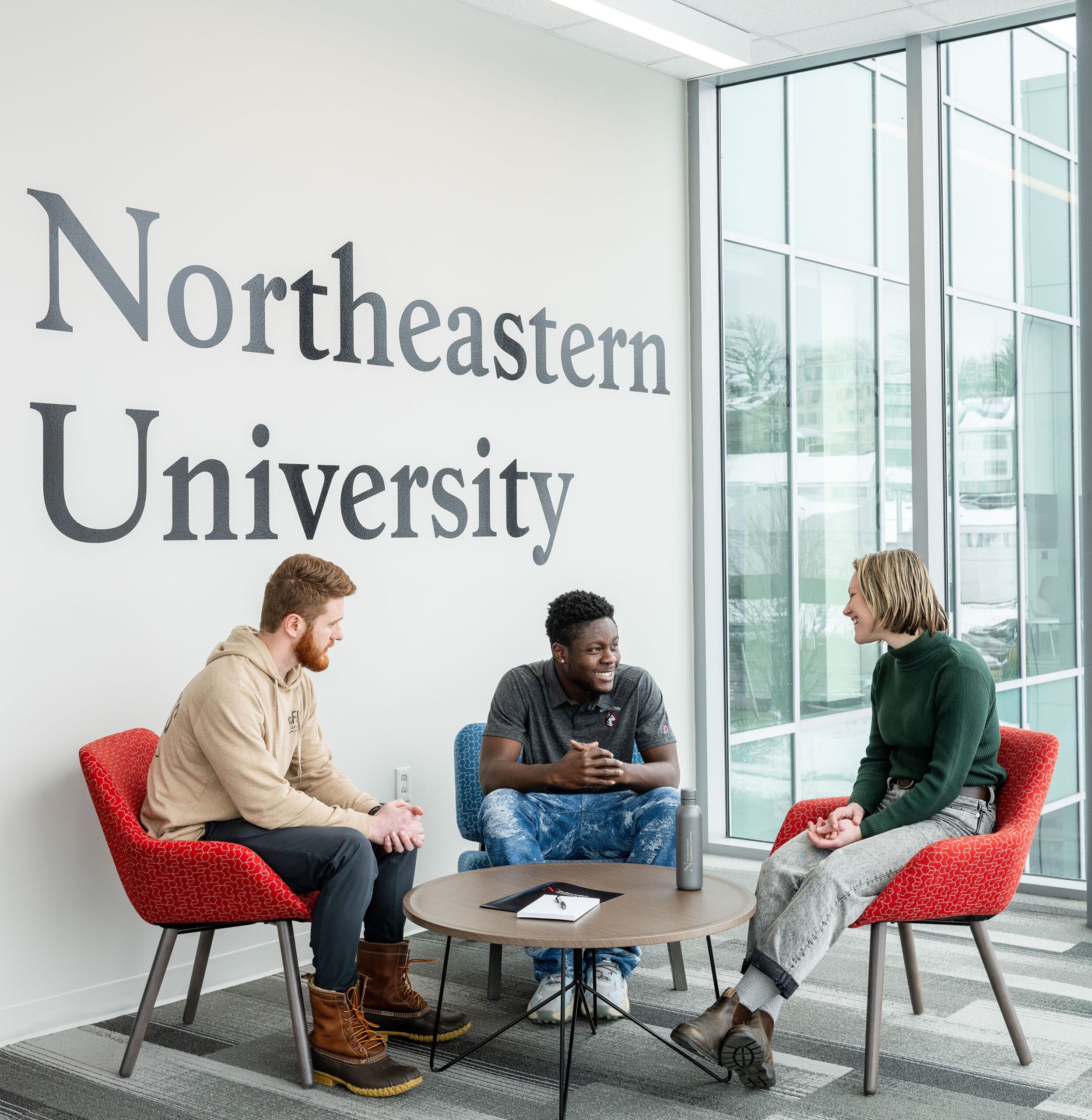
Inaugural student showcase highlights graduate students’ research
What do the data security of glucose monitors, brain activity during seizures, and rural health have in common? They’re just a few of the topics that students at the Roux Institute at Northeastern University presented on during the institute’s inaugural Student Showcase, held on May 5.
The event, which featured four keynote speakers and numerous digital poster presentations, shone a spotlight on the breadth of learning and research being done by Roux students. The presentations highlighted how the institute integrates learning with real world data and experiences, erasing the boundaries between classroom and the working world. The practice of experiential learning, which has been a foundation of Northeastern’s educational model for over 100 years, enables Roux students to gain hands-on experience as they work towards their degrees.
The keynotes explored patient care, environmental justice, and rural health:
- Meghana Chillara, who is pursuing a master’s in data science, wants to use data to improve the lives of epilepsy patients. Chillara presented research she’s working on with computer science assistant teaching professor Weston Viles. They’re analyzing data related to brain network activity to better understand connectivity during epileptic seizures. Chillara explained that capturing and studying the complexity of real brain networks could lead to breakthroughs in the early detection of seizures, better control of seizures, and an overall better quality of life for people with epilepsy.
- Sai Kumar Reddy Manne, a first-year master’s student in computer science, wants to make it easier to monitor breathing in infants. He developed a contactless method for estimating infant respiration using videos, created a novel dataset, and established a new baseline for this measurement. This development, which uses motion and color-based tracking methods, offers continuous monitoring without causing infant discomfort, and could be integrated into baby monitors or used in neonatal intensive care units to track vital signs.
- Dexter Morse, studying for a degree in bioinformatics, is using data to identify health disparities in rural New England. Using data from the National Institutes of Health’s All of Us research program and working with assistant teaching professor Michael Wilczek, Morse sought to understand health disparities and genetic variations in cancer patients in rural areas, with a focus on New England. Morse, who is set to graduate next fall, will continue working on this project and hopes it can be used to inform healthcare policy and identify gaps in healthcare where increased investment in cancer screenings is needed.
- Philip Mathieu, enrolled in the master’s of science data science Align program, is using data to reveal whether Maine residents have equitable access to public land. Working with associate teaching professor Philip Bogden, Mathieu compared public data on walking times to the nearest conservation lands with data gathered from a Biden administration environmental justice initiative called Justice40. Mathieu found that residents of communities that are classified as disadvantaged are 20% less likely to have conservation land within walking distance of their homes than residents of non-disadvantaged communities. Mathieu hopes his findings will help inform equity-focused policies around land conservation and will be used by land trusts and government organizations to evaluate their work.
Events like the showcase allow students to practice their presentation skills in preparation for professional settings and allow for more knowledge sharing in our academic community.

ANNIE CHUPREVICH
Senior Director of Academic Operations and Learner Services, The Roux Institute
Digital poster presenters included Greg Valcourt and Kris Barnes, both of whom will complete the master of science in computer science align program this year. The two investigated whether continuous glucose monitors, which are typically worn by people with diabetes and transfer health data using Bluetooth, are at risk of their data being compromised. Valcourt, whose research was inspired by his diabetic twin sister, and his research partner Barnes, concluded that while Bluetooth devices are discoverable, personal data being transferred by Bluetooth is protected.
Another poster presenter, Jacob Sagrans, is set to graduate this spring with a master of professional studies in analytics. He talked about Analytics for Social Good, a student interest group of which he’s a part. The group applies their learnings in analytics for the benefit of Maine communities, partnering with local organizations and nonprofits to help them better understand their operations and impact.
The Roux Institute’s senior director of academic operations and learner services, Annie Chuprevich, believes that the opportunity for students to showcase their work is an invaluable one. “Events like the showcase allow students to practice their presentation skills in preparation for professional settings and allow for more knowledge sharing in our academic community,” she said.
After witnessing the success of the inaugural student showcase, Chuprevich looks forward to expanding opportunities for students to share their work. “Our students are fulfilling the mission of the Roux Institute every day through their academics, co-ops, and projects,” she said. Their work is so important to the future of our state. It’s an honor to support and showcase it!”
